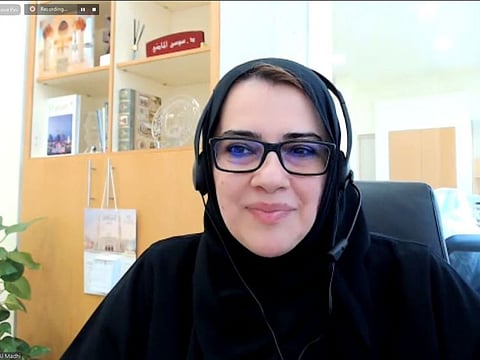Campaign to ‘Take Action’ against breast cancer launched in UAE
Pfizer and Friends of Cancer Patients join hands in second phase of cancer campaign

Also In This Package
Dubai: In order to drive greater awareness around breast cancer disease, Pfizer has launched the phase two of its Africa and Middle East region (AFME) campaign in the UAE.
Entitled ‘Take Action,’ the campaign seeks to empower and support breast cancer patients in the UAE to fight against the disease through its work with the UAE patient society ‘Friends of Cancer Patients (FOCP).’
To mark the second phase, Pfizer and FOCP held a media round-table and observed the Breast Cancer Awareness Month and Metastatic Breast Cancer Day that falls on October 13. Pfizer has been partnering with FOCP since 2017. The round-table also included highlights of a battle and journey from a cancer survivor in the UAE, shedding light on how other patients can get the information and take the necessary steps to fight the disease better.
High incidence of breast cancer in Africa and Middle East
According to the Globocan 2020 study, breast cancer is the most common cancer in the UAE and will account for 21.4 per cent of new cancer cases in 2020. Moreover, it impacts over 247,000 people across the AFME region diagnosed with the condition. Early-stage breast cancer is when cancer cells have not spread beyond the breast or axillary lymph nodes. However, in AfME, 50-60 per cent of breast cancer patients are in locally advanced or advanced stages at initial diagnosis. Metastatic breast cancer (MBC) is the most advanced stage of breast cancer, and it occurs when cancer spreads to other parts of the body, such as the lung, brain, liver, and bones.
Offering new age treatments for breast cancer
Dr Nadine Tarcha, Gulf Medical Director, Pfizer, commented: “There is a distinct need for more awareness campaigns to regularly encourage patients to check themselves for breast cancer and better understand the disease. Over the past decade, improved diagnostics, and newer treatment options for late-stage breast cancer, including those with different gene abnormalities, offer new horizons and hope for these patient.”
Breast cancer misconceptions
Dr Sawsan Al Madhi, Director General of FOCP, added: “We recognise that there is still more work to improve the outlook for people living with breast cancer. Several misconceptions around breast cancer and particularly metastatic breast cancer still exist today.”
Dr Al Madhi added: “Over the past few years, new treatments were approved, significantly controlling disease progression, and improving patients’ quality of life. With better awareness, prevention, treatment, and access to diagnostics, early detection could save between 2.4 and 3.7 million lives each year globally.”
According to WHO, breast cancer is the most common invasive cancer in women worldwide, with more than 2 million women impacted annually. Most women diagnosed with breast cancer do not have any signs or symptoms of the disease. However, there are sometimes changes in the breast that a woman may notice. While rare, men can also be diagnosed with breast cancer. For men, the lifetime risk of breast cancer is about 1 in 833.
Sign up for the Daily Briefing
Get the latest news and updates straight to your inbox









